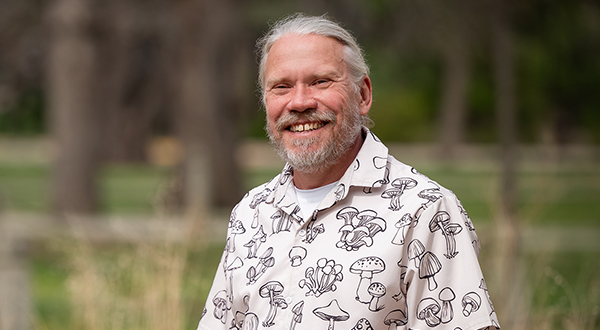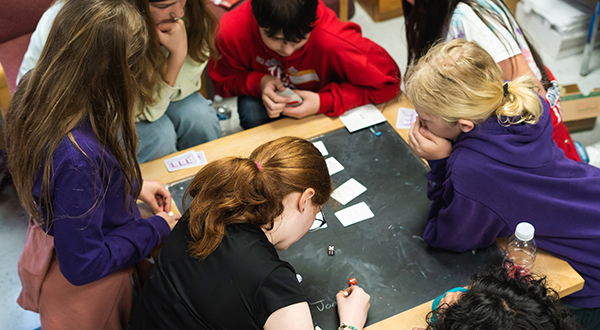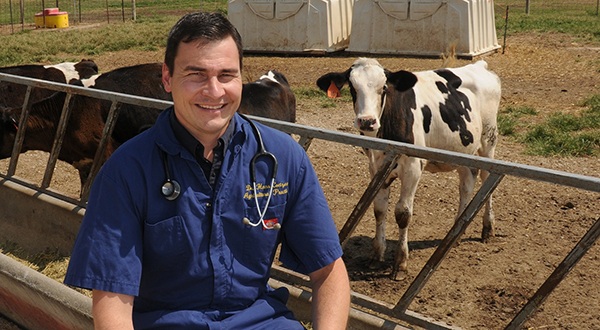Behind the scenes of one K-State professor's plan to make math class better
Craig Spencer, award-winning undergraduate educator, seeks excellence for math department.
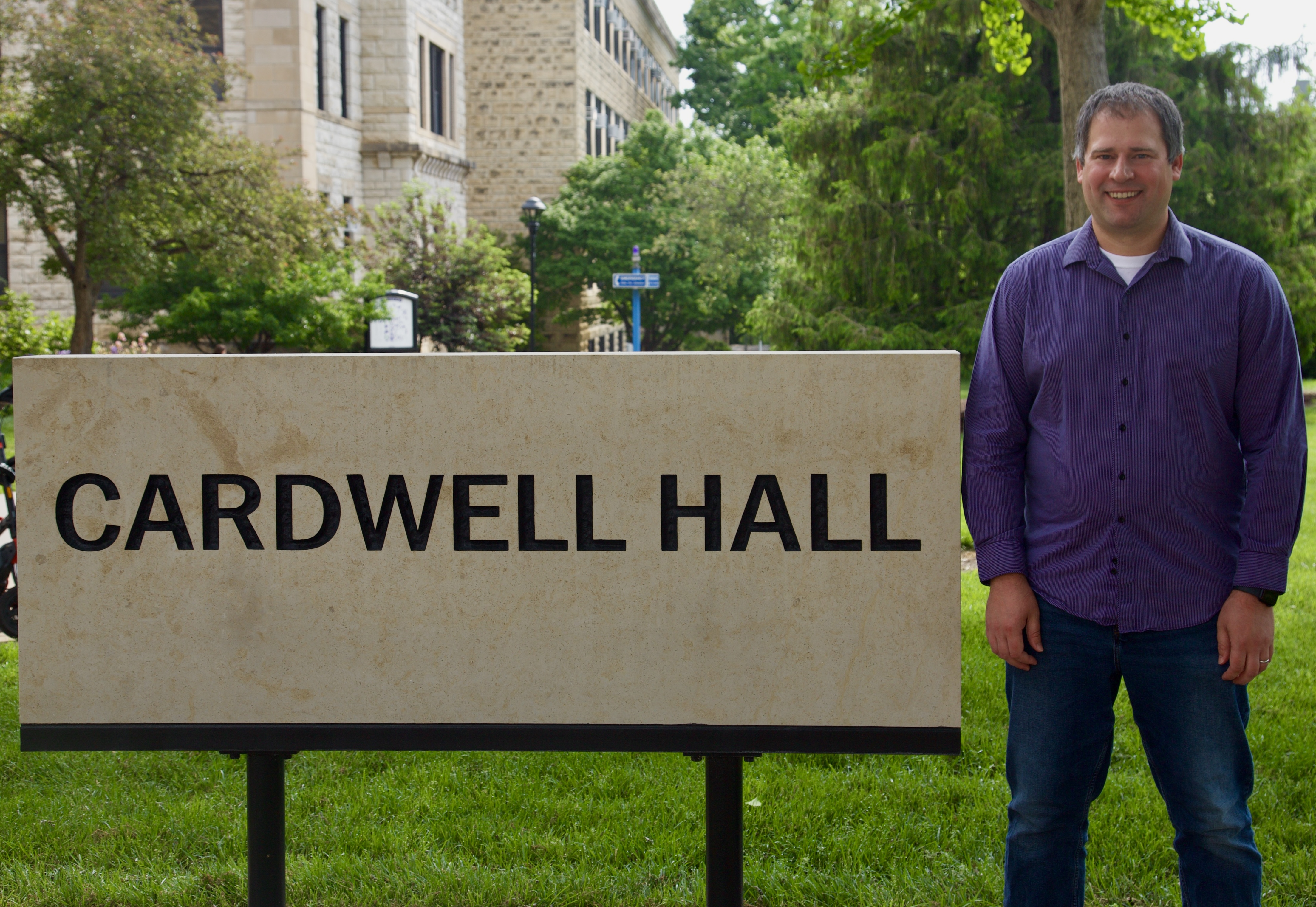
Craig Spencer, deputy director of undergraduate studies and professor in K-State's math department, is an award-winning educator working to make math education at K-State the best it can be. | Download this photo.
On any given day in Cardwell Hall, you'll find brilliant faculty, staff and students engaging in innovative education. If you pop your head into a couple of classrooms, you may find yourself learning from world-class physicists and mathematicians.
If you happen upon the Introduction to Contemporary Mathematics class, you may be in for a surprise. For one week, students in the class present designs for games and prizes at a fair. They've decided on what objects to use — like rings, bowling pins or balloons — what distances their games will cover and how to determine prizes. You might start to envision the wall of giant stuffed animals arranged in a pleasing display as you anticipate the thrill of competing in these student-designed games.
The Wildcat mathematicians collected and analyzed data to walk that fine line of making the games exciting as well as appropriately challenging, and the calculations result in fair games that could entertain whole families. As the students present their work, you can almost smell the funnel cakes and cotton candy in the room.
This mathematical modeling project teaches the students about real-world applications of their work. They'll learn from these models, and they'll learn even more from the man at the front of the room: Craig Spencer, their professor, a model of excellence.
Spencer, deputy director of undergraduate studies in Kansas State University's mathematics department, is an award-winning professor who is deeply committed to helping his students, his fellow faculty members and his university succeed. As the university's next Coffman Chair for Distinguished Teaching Scholars, he will continue to elevate K-State's mathematics program.
A formula for undergraduate success
As an undergraduate educator, Spencer specializes in engaging students during his classes and offering plenty of opportunities for extracurricular support.
"My main goal is to keep students as engaged as possible in my courses," he said. "In large calculus lectures, I try to be overly energetic and enthusiastic and encourage a large amount of student participation. In smaller classes, I like to use group work, inquiry-based learning and open-ended questions.
Outside of class, Spencer spends a large portion of his days meeting with students to provide guidance on coursework, address questions and extend student learning.
"Even though I often teach hundreds of students in a semester, I want to give each student the attention they deserve to help their investment in their education pay off," he said.
His proudest moments at K-State are those times he's been able to help students get past mathematical barriers — whether that's passing Calculus I or II after failing in a prior semester or finishing a graduate thesis.
He has invested significant time, energy and innovation into helping his students overcome these hurdles, and the students aren't the only ones who notice the exemplary effort.
College of Arts and Sciences Dean Chris Culbertson said one of Spencer's most significant contributions is his leadership in the development of a program to help new engineering students.
"The innovative Engineering Launch program is designed to prepare incoming engineering students for success in Calculus I," Culbertson said. "Each summer, Professor Spencer dedicates a month to working with these students, providing them with the foundational skills and confidence they need to excel in their studies. The success of this program is a testament to his dedication and effectiveness as an educator."
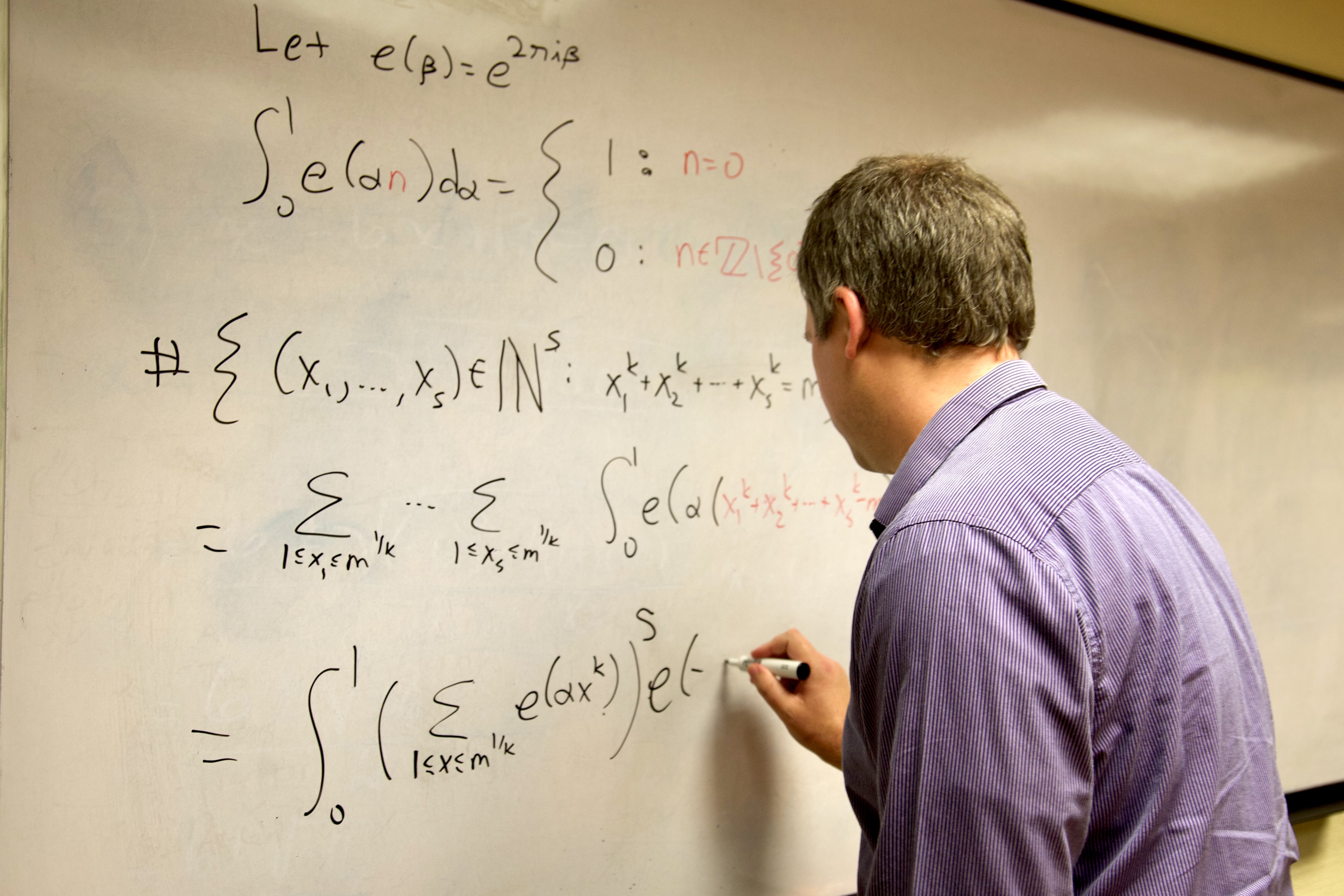
An equation for engagement
Spencer leads K-State's undergraduate mathematics program alongside Gabe Kerr, and in addition to the deputy director role's curriculum component, he is also active in engagement work.
As director of the Center for Quantitative Education, Spencer helps run professional development programs for K-12 teachers and works to improve retention rates in the K-State calculus sequence.
The departments of mathematics and curriculum and instruction have a long history of teaming up to offer summer professional development programs for K-12 teachers. Spencer has been part of K-State groups that offered training for teachers in Garden City, Leavenworth, Manhattan, Olathe, Pratt and surrounding districts.
In collaboration with Sherri Martinie and Tuan Nguyen, Spencer helped secure funding for K-State's NSF Noyce Program, which provides internships for freshmen and sophomores wanting to explore a career in math education and $36,000 in scholarships for juniors and seniors training to become secondary math teachers in high-needs districts.
Spencer brings middle school minds into the mix with K-State's Math Circle seminar during the school year. He teaches seventh- and eighth-graders in the free math enrichment program that meets Saturday mornings via Zoom, which complements the K-6 programs run by fellow faculty members Rustam Sadykov and Mikhail Mazin.
This work aligns with the university's strategic plan initiative to integrate engagement across all K-State does. With support from his mentors — Martinie, Andrew Bennet and Amy Betz — Spencer continues to help math education projects and programs engage future math students and teachers.
Spencer's outstanding work has been recognized with numerous accolades, including the Presidential Award for Excellence in Undergraduate Teaching, the William L. Stamey Award for Undergraduate Teaching and the Open Textbook Initiative Award.
This year, he adds another impressive honor to the list: 2025-2026 Coffman Chair for Distinguished Teaching Scholars.
Spencer will lead in-depth study of K-State's math initiatives as Coffman chair
The Coffman chair was created in 1995 to highlight K-State's commitment to excellence in undergraduate teaching and learning. Each chair is an acknowledged leading teaching scholar and is provided the time and resources to conduct a research project or develop programs to improve educational methods at the university. Recipients retain the title of teaching scholar throughout their career at K-State.
As the university's newest Coffman chair, Spencer plans to gather quantitative and qualitative data on the effects of recent curriculum changes and departmental initiatives to better understand how the mathematics department can improve placement recommendations, reduce D/F/W rates in lower-division courses and better serve the K-State community.
"Recent years have brought significant changes to math requirements across the institution," Spencer said. "With KBOR's new systemwide general education requirements, we've seen programs modify, and sometimes reduce, their math requirements."
Spencer is helping the department navigate the new requirements, including Math Pathways, an initiative that aims to create a more coherent and effective mathematics curriculum that meets the varied needs of students.
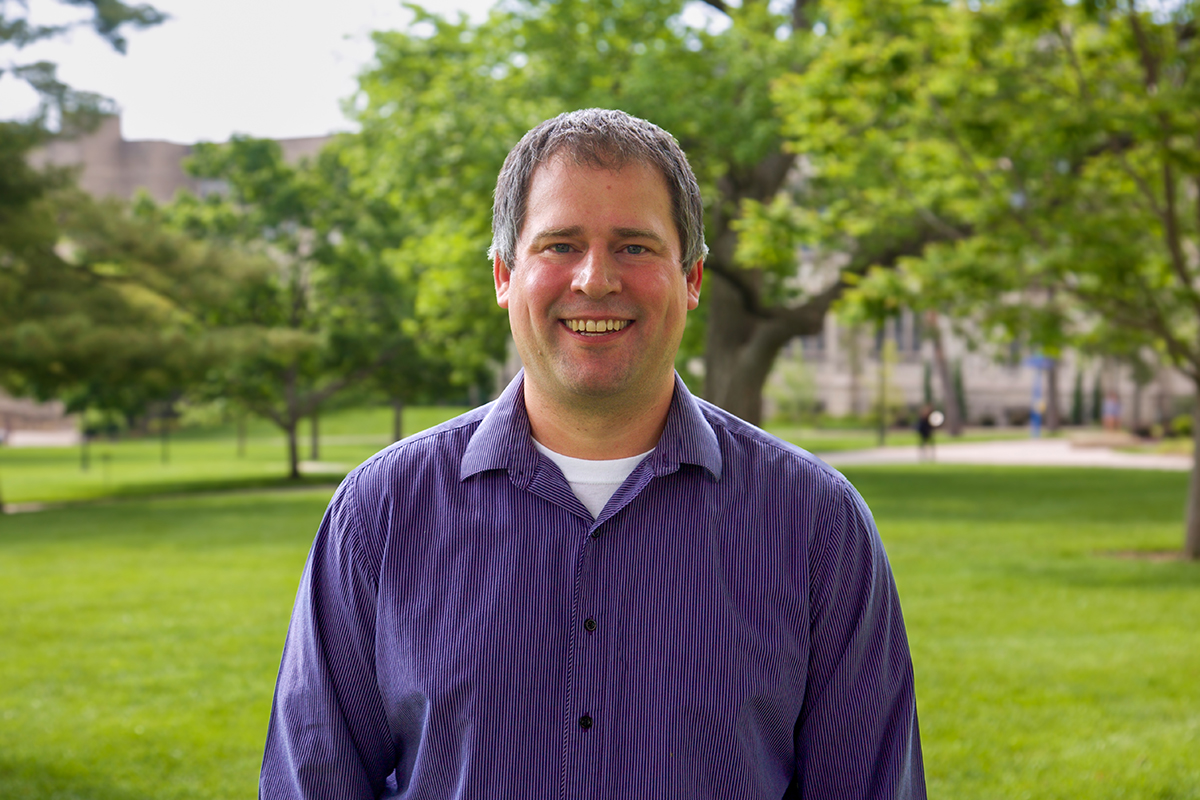
Spencer is K-State's 2025-2026 Coffman Chair for Distinguished Teaching Scholars, an honor recognizing him as a leading teaching scholar and a title he will retain for the duration of his K-State career. | Download this photo.
When the pathways are instituted next year, the Intermediate Algebra course can no longer be offered, and Spencer said students who don't meet certain placement measures for introductory math courses will be required to take versions with corequisite support.
Spencer will study the performance and implementation of the new corequisite support model for Math Pathways during his time as Coffman chair.
The math department has also implemented measures to improve retention rates. For example, students who fail the first exam in Calculus I are allowed to drop back into a special section of Precalculus. During the summer, incoming students at risk of failing Calculus I or II are encouraged to participate in online math preparation programs over the summer.
As Coffman chair, Spencer will accumulate and analyze data on student math placement measures, participation in various math programs and performance in math courses. He and his graduate students will conduct student surveys and interviews to gather student perspectives.
Through this careful analysis, Spencer hopes to help these vital mathematics department programs and initiatives function to their fullest potential and maybe even become the model for math education.
###

